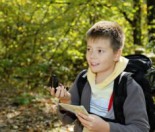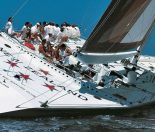Kayaking covers a range of on water sports, including kayaking on gentle rivers, white water, lakes and out at sea. Kayaking is a sport for the whole family, and in New Zealand there are water ways to suit every skill level.
What is Kayaking?
Kayaking is literally paddling a kayak, and in New Zealand there are no shortages of places to paddle. Kayaking can be done in rivers, lakes, or out at sea, and the sport can be enjoyed on your own or as a part of a group.
Where can you learn Kayaking?
New Zealand is surrounded by water, so there are plenty of places around which offer kayaking courses, or the opportunity to take a kayak out for a spin. Your local canoe and kayak shop will be able to put you in touch with courses or tours in your area, or check out ‘Canoes and Kayaks’ or ‘Adventure Tours’ in your Yellow Pages.
Most regions also have Kayak Clubs, which are full of kayaking enthusiasts who are happy to share their knowledge and skills. There is a good list of kayak clubs listed here.
What age can your child start Kayaking?
Provided you are a competent kayaker, children can literally start kayaking from birth, but more commonly children will happily sit in a kayak from about 2 or 3. While they obviously won’t be able to paddle at this age, they will develop a love for the sport, and an innate understanding of how it all works. The more time they spend in a kayak, the more confident they will become on the water, and by the time they are big enough to paddle, they will have a good level of confidence.
From about 6 years old, children will be able to manage a small kayak quite comfortably, especially if they have been out as a non-paddler before. By 8 or 9, children will really start to understand how paddling works, and you will be surprised by how quickly their skill level develops with practice.
How do you progress over time?
There are plenty of ways to progress with kayaking, and just how quickly you do this will depend on the child. Beginners will learn skills and gain confidence by sharing a double kayak with a more competent paddler, and they can start on gentle water ways (without white water!)
As their skills and confidence increase, they can start to kayak on their own, and attempt more and more challenging waters such as fast moving rivers or out at sea.
There are specific kayaking qualifications you can gain if you want to test and improve your competence levels. Anyone who wants to take part in kayaking events in New Zealand must complete a Grade 2 assessment with a registered provider, to show they are competent enough to compete.
What gear do you need for Kayaking?
If you want to take your child for a paddle, just to see if they like it, then you won’t need any gear at all. Canoeing or kayaking centres provide all the necessary equipment, including the kayak, paddle and life jacket.
However, if you have tested the waters and are ready to take the plunge, then it makes good sense to have your own gear. Obviously you will need a kayak, paddle and lifejacket, but you will also need to consider how you will transport your boat. Unless you live right on the waters edge, you will need a roof rack or roof box for getting your kayak around, and a trolley is also a useful purchase. Getting your kayak from the car to the waters edge isn’t quite as easy as it looks, especially on a busy summer afternoon. Trolleys might seem like an unnecessary luxury at first, but if you are planning on doing a lot of family paddling, they are well worth the investment – trust me!
As you progress in kayaking there are other pieces of equipment you may want to consider. Spray skirts, helmets, and dry bags are all items you will learn about as you hit faster water, or begin to enjoy longer and bigger adventures.
How much does Kayaking cost?
Like anything, kayaking costs as much as you want it to, depending on how you go about learning and enjoying the sport. With that in mind, here is an average guide to basic kayaking costs.
Kayak Hire
If you just want to get in and paddle to see how it feels, then you will be able to hire a kayak for as little as $15 for an hour, depending on where you live. This will provide you with a kayak, paddle, and life jacket. Double kayaks will cost about twice the price.
Like most things, kayak hire gets cheaper the longer you hire it. Day rates vary between $40 – $70, and a week long hire costs about $250.
Lessons
Lessons vary in price depending on whether you are having one-on-one coaching, or are a part of a group session. Many kayak centres offer courses specifically for children, and range between $10 – $20 per hour depending on the size of the group. This usually includes the cost of gear hire, but make sure you check before booking.
For one-on-one sessions you can expect to pay about $60 per hour.
Qualifications and Assessment
If you are wanting to compete in any kayaking or multi-sport events, you will need to gain your Grade 2 qualification from a registered provider. A Grade 2 course costs between $350- $800 depending on the provider, and your assessment will be about $200.
Kayaks and Paddles
Kayaks and paddles vary in price dramatically depending on what type of boat and paddles you want. You can find good basic single kayaks from about $500, and double or family kayaks from about $1200. Paddles start at about $120, and go up, up, up from there. Some retailers will offer you a kayak package which includes paddles and/or safety gear in the price.
Like anything, you need to be sure of what you want, so talk to a kayak expert about what type of kayaking adventures you are planning to take. Expert advice will help you avoid spending money on features you don’t really need, but more importantly, it will make sure you have all the essentials covered.
Life Jackets
Life jackets are absolutely essential for kayaking, and it is important to make sure they are well fitted and meet NZ safety standards. You can expect to pay upwards of $80 for a good quality child’s lifejacket.
How long does Kayaking take to learn?
Just how long it will take to become a competent kayaker depends on your child’s confidence, initial skill level, and how much time they are prepared to spend on the water.
One 2 hour session will provide your child with a basic knowledge of kayaking, but they will need 3 or 4 sessions to really get the hang of it. After that there are all sorts of tips, tricks and techniques they can learn to make their kayaking adventures safer and more enjoyable. The more they kayak, the more they will learn.





